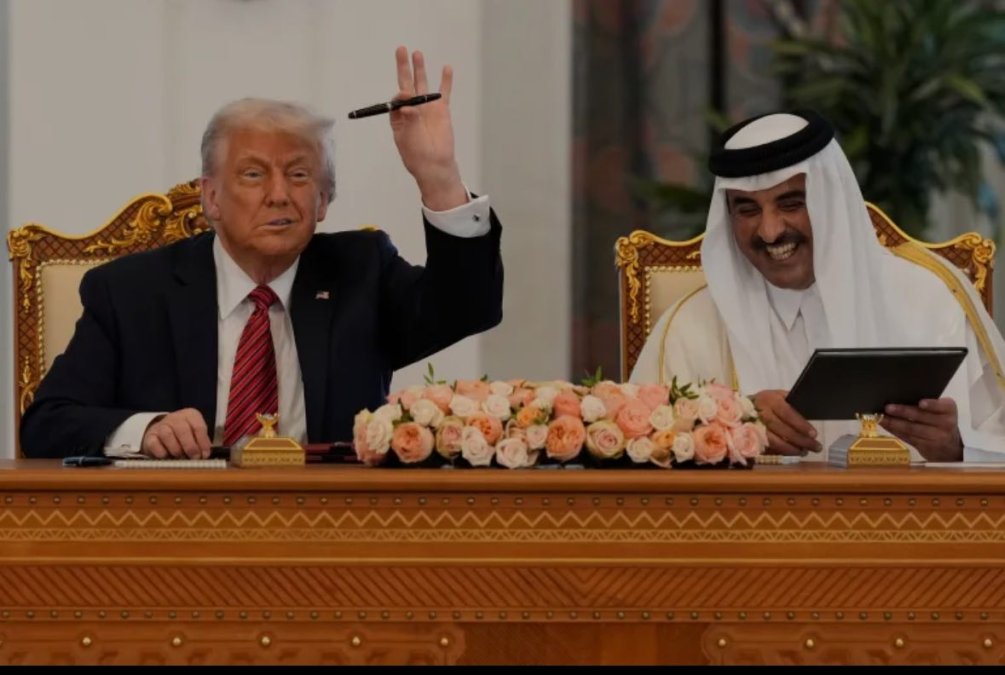Is a new Middle East being born?
Is a new Middle East being born?
The most important aspect of Trump’s recent trip to Saudi Arabia, Qatar, and the UAE is the impact it could have on the alignment of forces in the region.
This trip emphasized the role and position of these three countries and indicated America’s inclination to strengthen their political-economic approach.
This trip accelerated the process that began with the Arab Spring towards establishing the centrality of such countries in the Middle East.
During this trip, Trump acted as a less ideological president focused on achieving practical results to support his hosts, who, like him, are pragmatic, secular, and focused on economy and modernization.
Trump’s overall performance, particularly on this trip, is based on a transactional logic that regional forces focused on various ideologies and ancient animosities, like the Israeli hardliners, cannot offer him anything of that kind.
It is unprecedented for a U.S. president to prioritize and focus on three Arab countries in his first trip to the region, leaving Israel on the sidelines.
Trump’s message to Netanyahu during this trip was that America has its own specific interests in the Middle East and Israel should not be an obstacle. Therefore, there are signs that could indicate a strengthening possibility of shifting the center of U.S. Middle East policy from Tel Aviv to Riyadh.
For several decades, U.S. policy has been based on maintaining Israel’s superiority against other regional countries, strengthening Riyadh against Iran, and isolating Syria. Trump’s trip represents an adjustment in these traditional U.S. positions in the region and abandoning the remnants of an ideological view towards the region.
The policies displayed during Trump’s trip, which were almost considered by all political spectrums in Washington, could indicate more pragmatism from Washington in the region and following a kind of transactional logic and diplomacy.
Although there is no doubt that the new U.S. policy will strengthen Saudi Arabia’s position as the leader of the Sunni world, the orthodox and ideological aspect of this Sunni world, previously represented by Wahhabi sheikhs, is weakening, while its economic investment and modernization aspect is strengthening.
This trend, in terms of weakening Wahhabi fundamentalism, could also benefit Iran. Simultaneously, such a trend is detrimental to the hardline movement in Israel, and Iran can only benefit from it if it increases the pragmatic aspects of its approach.
If the ongoing negotiations between Iran and the U.S., supported by Arab governments, are successful, the possibility of establishing a new balance in the region to the detriment of Israel will increase.
There are numerous other signs, besides Israel being sidelined in Trump’s trip, that may indicate Trump’s decision, at least at this stage, to move towards a new balance in the region and to strip Israel of its privileged position under Netanyahu’s leadership.
Negotiating with Iran regardless of Netanyahu’s opinion, ignoring Israel in the ceasefire with the Houthis, freeing an American hostage through negotiations with Hamas without Israeli involvement, not insisting that Saudi Arabia and Qatar recognize Israel and leaving this issue to them, dissatisfaction with the continuation of the Gaza war and Netanyahu’s inability to present a plan for the post-war period, cooperating with Saudi Arabia for peaceful use of nuclear energy, and the plan to sell F-35 fighters have so far made it clear that at least the right-wing tendency in Israel, led by Netanyahu, can no longer count on Trump’s and America’s support.
Of course, time will tell whether this trend will only weaken leaders like Netanyahu, who are trapped in sectarian prejudices, or will generally affect U.S.-Israel relations.
Although the strategic alliance between the U.S. and Israel, supported by both parties in America, will certainly endure, the increase in opposition to current Israeli policies in America and Trump’s recent actions have shown that the Israeli right can no longer even count on the support of an extreme president like Trump.
If such a trend continues and strengthens, it could facilitate the process of forming an independent Palestinian state.
Trump’s meeting with the new Syrian president through Saudi Arabia and the unexpected announcement of lifting U.S. sanctions against Syria in Riyadh, emphasizing that this action was done at the request of Bin Salman, was another significant development during this trip.
This action took place while Israeli aggressions against Syria and the clear attempt to weaken national cohesion and violate Syria’s territorial integrity, turning this important Arab country into a fragmented state, continue intensely.
Trump’s action, regardless of his intentions, could help stabilize the situation in Syria and strengthen the central government, and in the long term, be beneficial for the continued existence of this important Arab power alongside Israel.
This action by Trump in Riyadh is also important because it could strengthen the Saudi axis in Syria and be a barrier against Turkey’s dominance and the Brotherhood axis.

